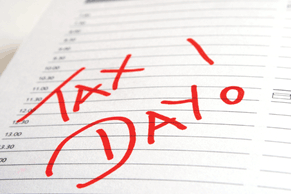HMRC concedes on penalties for late self-assessment
For weeks tax experts have been pressuring HMRC to scrap penalties for late filing of 2019/20 self-assessment tax returns. Until now HMRC has refused. Today it’s made a partial concession. What’s the full story?

The pressure has been mounting on HMRC and the government to give a general amnesty for taxpayers who submit their 2019/20 self-assessment tax return online later than the usual filing deadline of 31 January 2021. HMRC hasn’t gone that far but has agreed that anyone who can’t file their return by the deadline won’t receive a late filing penalty if they file online by 28 February.
In its statement, HMRC hasn’t mentioned the penalties charged for those who were late submitting their 2019/20 paper self-assessment tax return which was due by 31 October. We’ll have to wait to see if it decides to retrospectively cancel some or all of them.
The announcement doesn’t change any statutory right to have a late filing penalty canceled if the taxpayer have a reasonable excuse for submitting their tax return after the deadline. This means if anyone can’t file your return by 28 February they still have the right to appeal against the £100 penalty that HMRC will automatically issue.
Related Topics
-
Weekend November PAYE deadline
The next electronic payment deadline for PAYE falls on a weekend. What do you need to do?
-
Compliance check tool gets an update
If you are on the receiving end of a compliance check, you might head to HMRC’s bank of online information to find out what to do. However, this can be overwhelming. How can an updated tool help you to get the correct information for your circumstances?
-
Are IHT changes coming?
You’re seeing a lot of speculation in the press about further changes to inheritance tax (IHT) in the upcoming Budget, including a cap on the amount you can give to your loved ones. Would you be better off making gifts before the Budget date?






 This website uses both its own and third-party cookies to analyze our services and navigation on our website in order to improve its contents (analytical purposes: measure visits and sources of web traffic). The legal basis is the consent of the user, except in the case of basic cookies, which are essential to navigate this website.
This website uses both its own and third-party cookies to analyze our services and navigation on our website in order to improve its contents (analytical purposes: measure visits and sources of web traffic). The legal basis is the consent of the user, except in the case of basic cookies, which are essential to navigate this website.